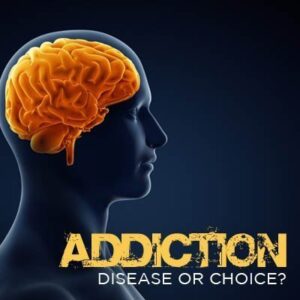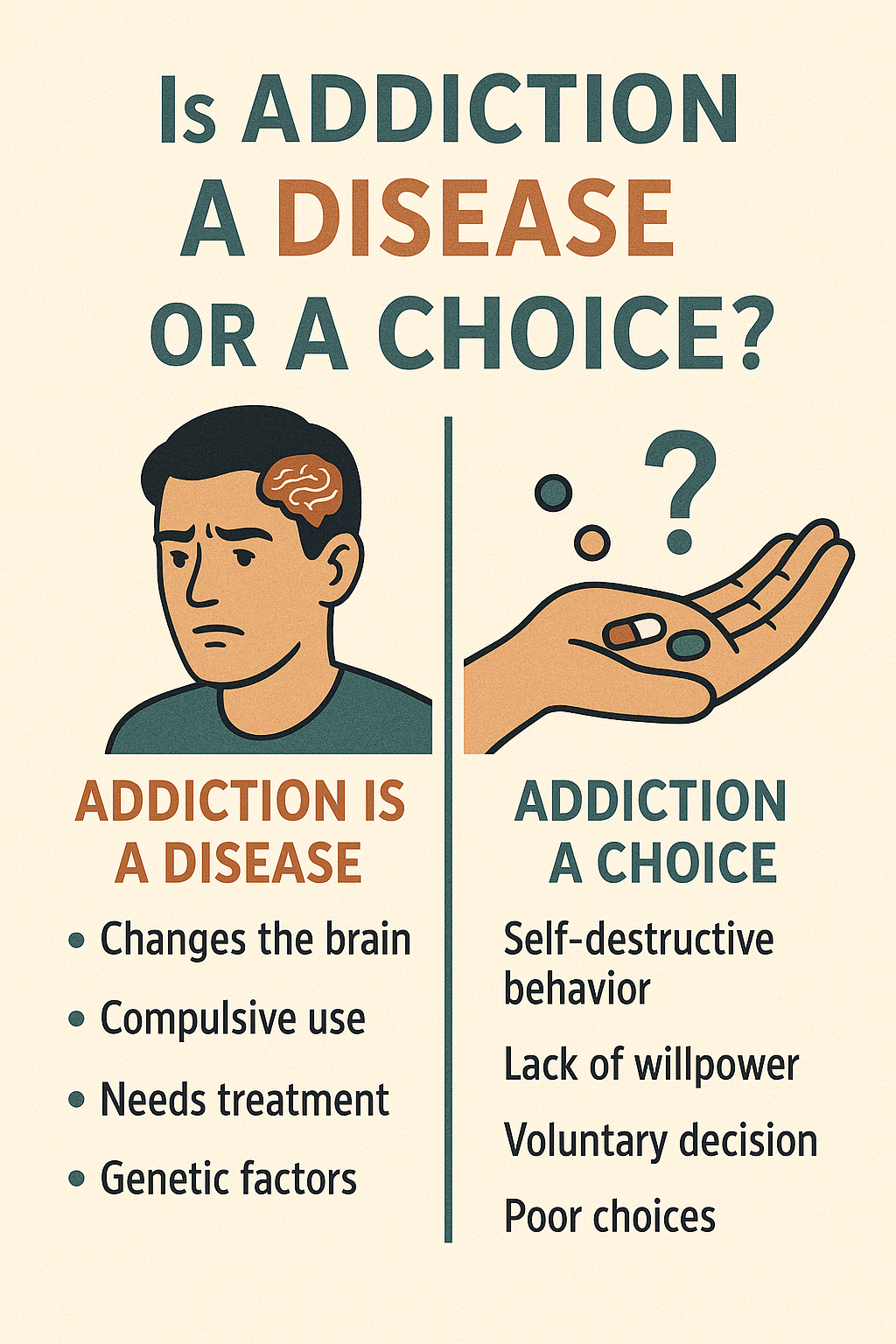
Addiction is widely debated, with some viewing it as a disease and others as a personal choice. This blog explores both perspectives, considering science, individual choices, social factors, and policy implications to help readers form their own conclusions.
Overview of the Perspectives
The debate over addiction has grown more complex over time. On one side, many experts argue that genetic predispositions and neurological changes make addiction a chronic condition that requires long-term management. Conversely, supporters of the choice perspective maintain that behavior and decision-making have a primary role. Both views offer valid points and have shaped modern approaches to treatment and prevention.
Understanding Addiction as a Disease
The disease model treats addiction as a chronic condition that alters brain function. Medical studies have shown that prolonged substance abuse can change the way the brain processes pleasure and stress. With these changes, everyday rewards lose their appeal, making it difficult for individuals to regulate their impulses without ongoing, structured care.
What is the Disease Model?
This model views addiction as a health condition that disrupts normal brain functioning. The brain adapts to the consistent presence of an addictive substance, diminishing its response to natural rewards. As a result, treatments are focused on managing these brain changes through medically based interventions similar to those used for chronic illnesses like diabetes or heart disease.
Who Supports the Disease Model?
- Medical professionals use brain imaging and scientific research to validate their methods.
- Organizations that treat addiction as a long-term health challenge.
- Groups advocating for increased funding in medical treatment and rehabilitation centers.
Pros & Cons of This Approach
Pros: The disease model promotes evidence-based treatments and helps reduce stigma by framing addiction as a health issue rather than a moral failing. It also supports the development of long-term recovery programs.
Cons: On the flip side, this approach can diminish the sense of personal responsibility and may underplay the impact of environmental and social influences. The focus on biology alone sometimes leads to a one-size-fits-all treatment strategy that may not suit everyone.
Understanding Addiction as a Choice
The choice perspective argues that addiction stems from decisions people make, regardless of the various pressures they might face. Advocates claim that individuals have the power to switch up their behaviors and that personal will and accountability are crucial for overcoming addictive patterns. This view highlights the role of self-help methods, counseling, and peer support in recovery.
What Does It Mean to View Addiction as a Choice?
Proponents of the choice model believe that, despite genetic or psychological influences, it is ultimately an individual’s decisions that shape the onset and continuation of addictive behaviors. They assert that people can change their habits and regain control of their lives with the right mindset, commitment, and support.
Who Backs This Perspective?
- Advocates who emphasize personal responsibility in managing behavior.
- Recovery programs that focus on counseling, behavioral therapy, and self-help initiatives.
- Organizations that support empowering individuals to rebuild their lives through informed decisions.
Pros & Cons of the Choice Model
Pros: This perspective reinforces that personal effort and determination make change possible. It inspires individuals to tap into their inner strength and seek community support.
Cons: However, viewing addiction solely as a choice may oversimplify the issue by ignoring critical genetic and biological factors. It can also lead to increased blame on individuals and might undervalue the importance of professional treatment when it is genuinely needed.
Key Comparisons Between the Two Views
- Biological Evidence: Studies indicate that addictive behaviors alter brain chemistry, supporting the disease model. Still, these changes do not affect every individual equally, suggesting that personal decisions influence outcomes.
- Behavior and Decision-making: While the disease perspective argues that addiction hijacks the brain’s decision-making, the choice perspective holds that individuals can make mindful decisions even in challenging circumstances.
- Social Influences: External factors like stress, peer pressure, and socioeconomic status contribute significantly to addiction. The disease model sees these factors as exacerbating brain changes, whereas the choice model views them as hurdles individuals can overcome.
- Policy and Treatment: Labeling addiction as a disease has led to more investment in medical treatments and rehabilitation programs. Conversely, the choice perspective supports treatment programs that focus on behavioral change and personal empowerment.
- Support Systems: The disease model relies on consistent, long-term medical care, whereas the choice model emphasizes community support and personal accountability in recovery.
Final Verdict: Which Perspective Resonates?
Both approaches offer valuable insights. The disease model emphasizes biological factors and advocates medical intervention, whereas the choice model emphasizes personal effort and accountability. Although neither view tells the complete story, each offers essential ideas that can help shape balanced, effective treatment plans. Your experiences and viewpoints may help you decide which perspective feels most accurate.
Final Thoughts
The debate over whether addiction is best understood as a disease or a matter of choice remains complex. It is essential to recognize that while brain chemistry significantly impacts behavior, personal decisions and environmental influences also play a significant role. A balanced approach that incorporates medical treatment and support for personal responsibility may offer the best opportunity for recovery. How we discuss and address addiction can influence public policy and the resources available for those who need them most. Consider the evidence carefully, and remember that effective recovery often requires a mix of strategies tailored to the individual.
Video: Is Addiction a CHOICE or a Disease
